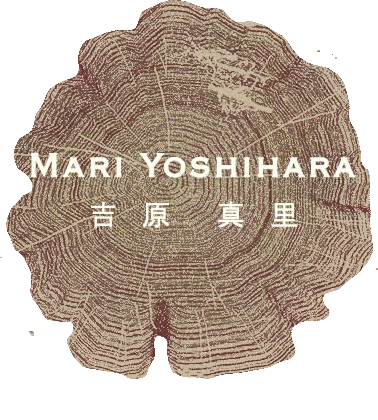Fukigen na Eigo tachi, or, What I Write About when I Write (Mostly) in Japanese (2023)
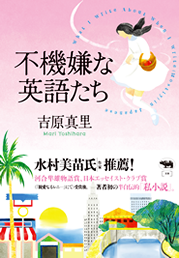 A sort-of-but-not-quite bilingual memoir of a piano-playing Tokyo girl who was thrown into the world of English at age eleven when her father’s job relocates the family to Cupertino, CA. Learning to speak, read, and write English fundamentally alters Mari's ways of being in the world, which often manifest in unexpected forms. Twelve years after returning to Japan, she again relocates to the United States, this time on her own will. Her encounters with different facets of “America” are refracted by her intersecting identities as an English-speaking, Japanese, Asian, female, college professor, all of which shape the stories she tells in Japanese and English.
A sort-of-but-not-quite bilingual memoir of a piano-playing Tokyo girl who was thrown into the world of English at age eleven when her father’s job relocates the family to Cupertino, CA. Learning to speak, read, and write English fundamentally alters Mari's ways of being in the world, which often manifest in unexpected forms. Twelve years after returning to Japan, she again relocates to the United States, this time on her own will. Her encounters with different facets of “America” are refracted by her intersecting identities as an English-speaking, Japanese, Asian, female, college professor, all of which shape the stories she tells in Japanese and English.

Shin'ai naru Renii: Leonard Bernstein to sengo nihon no monogatari (2022)
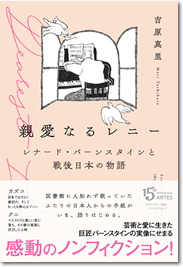 The Japanese version of Dearest Lenny: Letters from Japan and the Making of the World Maestro (2019), translated and reworked for the Japanese readers by the author.
The book has won wide acclaim, having won the Japan Music Pen Club Award, the Japan Essayist Club Award, and the Kawai Hayao Prize for Stories.
The Japanese version of Dearest Lenny: Letters from Japan and the Making of the World Maestro (2019), translated and reworked for the Japanese readers by the author.
The book has won wide acclaim, having won the Japan Music Pen Club Award, the Japan Essayist Club Award, and the Kawai Hayao Prize for Stories.

Watashitachi ga koe wo ageru toki [When We Speak Up](2022)
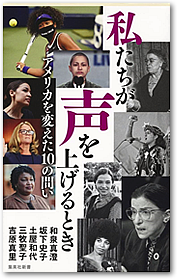 This collaborative collection sheds light on ten women in modern America—from Rosa Parks and Haunani-Kay Trask to Alexandria Ocasio-Cortez and Naomi Osaka—who courageously spoke up against injustice. Through an intersectional analysis of the issues addressed by these women, the act of standing up and speaking up, as well as its impact, repercussions, and legacies, the book considers the meaning and power of women’s voices and solidarity.
This collaborative collection sheds light on ten women in modern America—from Rosa Parks and Haunani-Kay Trask to Alexandria Ocasio-Cortez and Naomi Osaka—who courageously spoke up against injustice. Through an intersectional analysis of the issues addressed by these women, the act of standing up and speaking up, as well as its impact, repercussions, and legacies, the book considers the meaning and power of women’s voices and solidarity.

Unpredictable Agents: The Making of Japan’s Americanists During the Cold War and Beyond (University of Hawaiʻi Press, 2021)
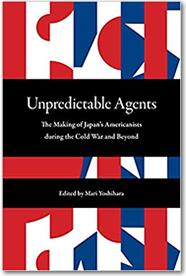 The book features twelve personal essays by Japanese scholars of American studies who tell their stories of how they encountered “America” and came to dedicate their careers to studying it. While illuminating the strong linkage between history, politics, and economics on the one hand and knowledge production on the other, the diverse trajectories of the authors who grew up in different parts of Japan—from the Mennonite community in Hokkaido to U.S.-occupied Okinawa—and their wide-ranging experiences with America defy a deterministic account of Cold War liberalism. Together, the essays illustrate the complex positionalities, fluid identities, ambivalent embrace, and unpredictable agency of Japan’s “Americanists.”
The book features twelve personal essays by Japanese scholars of American studies who tell their stories of how they encountered “America” and came to dedicate their careers to studying it. While illuminating the strong linkage between history, politics, and economics on the one hand and knowledge production on the other, the diverse trajectories of the authors who grew up in different parts of Japan—from the Mennonite community in Hokkaido to U.S.-occupied Okinawa—and their wide-ranging experiences with America defy a deterministic account of Cold War liberalism. Together, the essays illustrate the complex positionalities, fluid identities, ambivalent embrace, and unpredictable agency of Japan’s “Americanists.”

Dearest Lenny: Letters from Japan and the Making of the World Maestro (Oxford University Press, 2019)
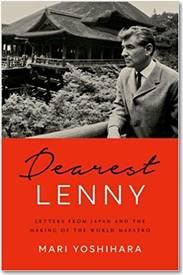 The book interweaves an intimate story of love and art with a history of Leonard Bernstein’s transformation from an American icon into a world maestro during the second half of the twentieth century. Through personal letters of two little-known Japanese individuals with whom Bernstein formed deeply emotional connections, the book conveys the meaning Bernstein and his music had at various stages of their lives. The book further traces the making of a global Bernstein amidst the shifting landscape of classical music. Dearest Lenny paints a poignant portrait of individuals connected across cultures, languages, age, and status through correspondence and music—and the world that shaped their relationships.
The book interweaves an intimate story of love and art with a history of Leonard Bernstein’s transformation from an American icon into a world maestro during the second half of the twentieth century. Through personal letters of two little-known Japanese individuals with whom Bernstein formed deeply emotional connections, the book conveys the meaning Bernstein and his music had at various stages of their lives. The book further traces the making of a global Bernstein amidst the shifting landscape of classical music. Dearest Lenny paints a poignant portrait of individuals connected across cultures, languages, age, and status through correspondence and music—and the world that shaped their relationships.

“Ajia-jin” wa ikanishite kurasikku ongakuka ni natta noka—Jinshu, jendaa, bunka shihon [How “Asians” Became Classical Musicians: Race, Gender, Cultural Capital] (2013)
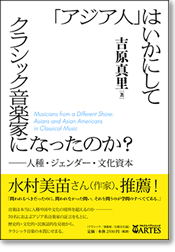
This book is a Japanese version of Musicians from a Different Shore: Asians and Asian Americans in Classical Music, translated by the author. Six years since the publication of the original in 2007, the presence of Asians and Asian Americans in the world of classical music continues to grow. Translating an English-language academic book about issues of “identity” in the United States into a Japanese-language book for general readers was an interesting challenge involving much more than word-per-word translation. I hope to have illustrated both the issues that are particular to American social relations and those that transcend national, racial, and cultural boundaries.

Musicians from a Different Shore: Asians and Asian Americans in Classical Music (Temple University Press, 2007)
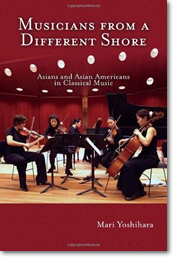
Musicians of Asian descent enjoy unprecedented prominence in the world of classical music. The book analyzes this phenomenon through historical analysis and ethnographic fieldwork. A confluence of culture, politics and commerce in the second half of the twentieth century made classical music a staple in middle-class households in East Asia, and soon brought about a “reverse flow” of classical musicians from the East to the West. Against this historical backdrop, the author interviews prominent as well as rising Asian and Asian American musicians who have taken various routes into classical music careers, discussing the connections between racial and cultural identity and music making.

Embracing the East: White Women and American Orientalism (Oxford University Press, 2003)
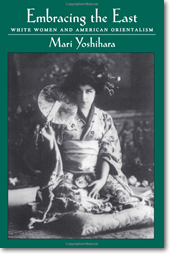
This study examines a wide range of white women who were attracted to Japan and China in the late nineteenth and early twentieth century and shows how, through their engagement with Asia, these women found new forms of expression, power, and freedom that were often denied to them in other realms of their lives in America. Through concrete historical narratives and careful textual analysis, the book examines the ideological context for America's changing discourse about Asia and interrogates the power and appeal—as well as the problems and limitations—of American Orientalism for white women's explorations of their identities.

Van Kuraibaan Kokusai Piano Konkuuru—Shimin ga hagukumu geijutsu ivento [Van Cliburn International Piano Competition: An Art Event Nurtured by the Civic Community] (2010)
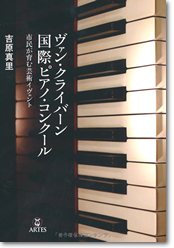 In 2009, the victory of Japan’s Nobuyuki Tsujii and China’s Haochen Zhang in the Thirteenth International Van Cliburn International Competition not only launched the international careers of these young pianists but also brought attention to the competition itself as an art event. Through a history of how this event held in Fort Worth, TX became one of the world’s most prestigious music competitions, a social analysis of the civic involvement in the competition, and a journalistic account of the 2009 competition, the book explores such themes as the role of competitions in the music world, the relationship between arts and the local community, arts and the media, and more.
In 2009, the victory of Japan’s Nobuyuki Tsujii and China’s Haochen Zhang in the Thirteenth International Van Cliburn International Competition not only launched the international careers of these young pianists but also brought attention to the competition itself as an art event. Through a history of how this event held in Fort Worth, TX became one of the world’s most prestigious music competitions, a social analysis of the civic involvement in the competition, and a journalistic account of the 2009 competition, the book explores such themes as the role of competitions in the music world, the relationship between arts and the local community, arts and the media, and more.

Sei-ai Eigo no kiso chishiki [Basics of English on Sex and Love] (2010)
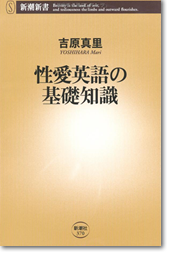
While the joy and agony on matters of love, relationships, and sex may transcend cultures, much of what unfolds between men and women are in fact highly shaped by culturally specific norms and expectations about gender roles, sexuality, marriage, and family. By “interpreting” American expressions about love and sex, the book guides the Japanese reader through the maze of contemporary American life and culture. Expressions unpacked in the book include: “mixed messages”; “fear of commitment”; “the One”; “baggage”; “high maintenance”; “trophy wife”; “We need to talk”; “It’s not you; it’s me”; “I love you, but I’m not in love with you.”

Dotto komu ravaazu—Netto de deau Amerika no onna to otoko [Dot Com Lovers: Online Encounters of American Women and Men] (2008)
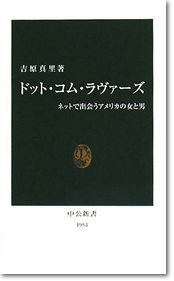 While online dating has become a completely mainstream method of dating in the United States, many Japanese still feel wary or outright scared of internet-mediated encounters. Through a lively account of the author’s own experience of online dating in New York and Hawai‘i, the book not only discusses the nature of relationships that begin on the computer screen but also introduces the Japanese reader to diverse and complex facets of contemporary American society and culture, such as norms and expectations of family life, gay relationships, family drama that unfolds during the holiday season, and the culture of Orientalism and its impact on dating for Asian women.
While online dating has become a completely mainstream method of dating in the United States, many Japanese still feel wary or outright scared of internet-mediated encounters. Through a lively account of the author’s own experience of online dating in New York and Hawai‘i, the book not only discusses the nature of relationships that begin on the computer screen but also introduces the Japanese reader to diverse and complex facets of contemporary American society and culture, such as norms and expectations of family life, gay relationships, family drama that unfolds during the holiday season, and the culture of Orientalism and its impact on dating for Asian women.

Gendai Amerika no kiiwaado [Keywords of Contemporary America] (2006)
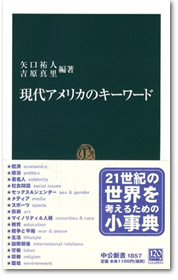 This book, co-edited and co-authored with Yujin Yaguchi, is a collection of 81 essays discussing keywords of contemporary America, especially after 9/11. Many of the keywords are highly relevant to understanding U.S. society and culture but are not well known to the Japanese public. Scholars, activists, artists, and other professionals from the United States and Japan contribute to the volume by providing general information as well as critical discussions about the keywords, ranging from “the Abu Ghraib scandal,” “prison industrial complex,” “Christian right,” and “gated communities” to “Queer Eye for the Straight Guy,” “Dr. Phil,” and “Martha Stewart.”
This book, co-edited and co-authored with Yujin Yaguchi, is a collection of 81 essays discussing keywords of contemporary America, especially after 9/11. Many of the keywords are highly relevant to understanding U.S. society and culture but are not well known to the Japanese public. Scholars, activists, artists, and other professionals from the United States and Japan contribute to the volume by providing general information as well as critical discussions about the keywords, ranging from “the Abu Ghraib scandal,” “prison industrial complex,” “Christian right,” and “gated communities” to “Queer Eye for the Straight Guy,” “Dr. Phil,” and “Martha Stewart.”

Amerika no daigakuin de seiko suru hoho—Ryugaku junbi kara shushoku made [How to Succeed in Graduate School in America: From Applying to Graduate School to Entering the Job Market] (2004)
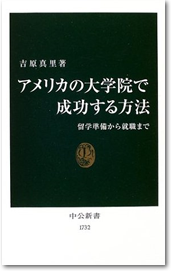 This is a practical guidebook that provides hands-on advice for Japanese students considering going to graduate school in the United States. It is also an introduction to the American university system, graduate education, and the academic profession. By discussing what is expected in each stage of graduate training—from coursework and qualifying exams and dissertation research and writing—the book helps students in making the most out of their graduate school experience. It also offers tips on selecting the right school and program, putting together a strong application, coping with the mental stress of graduate school, and preparing for the academic job market.
This is a practical guidebook that provides hands-on advice for Japanese students considering going to graduate school in the United States. It is also an introduction to the American university system, graduate education, and the academic profession. By discussing what is expected in each stage of graduate training—from coursework and qualifying exams and dissertation research and writing—the book helps students in making the most out of their graduate school experience. It also offers tips on selecting the right school and program, putting together a strong application, coping with the mental stress of graduate school, and preparing for the academic job market.

The Fall of Language in the Age of English (Columbia University Press, 2015)
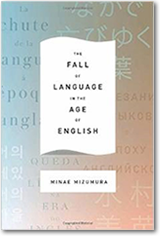 This is an English translation of a work of criticism by acclaimed Japanese novelist Minae Mizumura whom I deeply admire, co-translated by Juliet Winters Carpenter and myself. The book gives an engaging and insightful account of the history of the written language and the rise of national literature to address the meaning of reading and writing in one’s “national language” in today’s world when English dominates as the singular universal language. It is a provocative and important book that should be read by everyone interested in the written word.
This is an English translation of a work of criticism by acclaimed Japanese novelist Minae Mizumura whom I deeply admire, co-translated by Juliet Winters Carpenter and myself. The book gives an engaging and insightful account of the history of the written language and the rise of national literature to address the meaning of reading and writing in one’s “national language” in today’s world when English dominates as the singular universal language. It is a provocative and important book that should be read by everyone interested in the written word.










